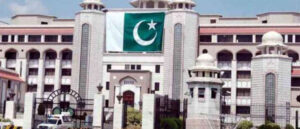Underground Water Levels in Five Major Cities, Including Quetta, Have Declined to Dangerous Levels

Islamabad: The underground water levels in five important cities of Balochistan, including Quetta, have dropped to dangerously low levels.
A meeting of the Senate’s Water Resources Committee was held under the chairmanship of Senator Shahadat Awan, during which a briefing was provided on the deteriorating water situation in Balochistan and the measures related to the scarcity of underground water.
The meeting revealed that of 127 tube wells, 22, and of 108 filtration plants, 39, are not fit for drinking.
Officials during the meeting acknowledged that there has been no survey of water resources in Balochistan since 2021, and the scarcity of underground water is primarily due to the establishment of tube wells.
Provincial authorities indicated that there are 46,000 registered tube wells in Balochistan, but the actual number is in the millions, with thousands being illegal. These illegal tube wells are extracting water and consuming electricity, and no survey regarding tube wells has been conducted since 2015.
Subsequently, the committee directed the testing of water from all filtration plants and tube wells.
Briefing on Water Situation in Islamabad
On the other hand, officials from the National Council for Water Research also briefed on the water situation in Islamabad.
The briefing stated that of 127 tube wells in Islamabad, 22 provide water that is not safe for drinking; of 108 filtration plants, 39 are also unsafe; of 12 water works, 5 are not potable; and out of 41 rural water supplies, 33 are unfit for consumption.
The committee requested an updated report on clean drinking water in Islamabad within 15 days and ordered the Director General of Water Quality to test the water from all filtration plants in the city.








